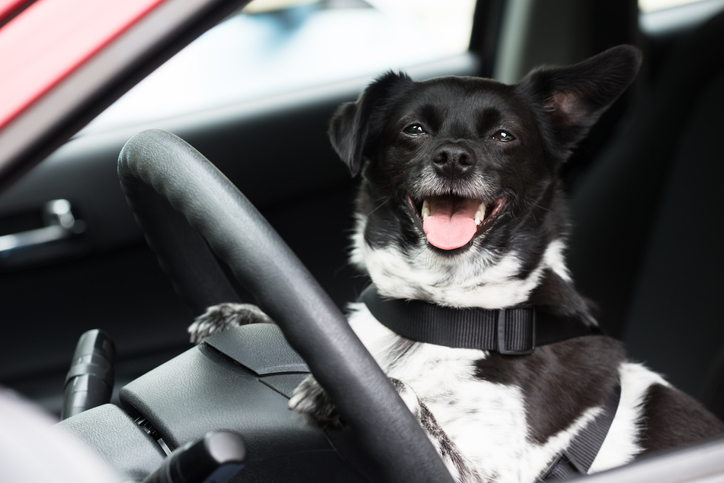Our pets often feel like family members, but one area people tend to treat pets differently is in the car. A few years ago, a survey found that 56 percent of pet dog owners had driven with their dog at least once a month in the previous year, and 52 percent of dog owners petted their dogs while driving. Many pet owners even allow their pet to sit in the lap while driving.
Dangers for Pets in Cars
While Florida does not currently have a pet restraining law, you can still be cited for distracted driving or cruelty to animals. Additionally, sudden stops or swerves could frighten the animal, putting both of you at risk. And if your pet is not restrained during an accident, their life could be in serious danger.
Another concern is leaving the pet unattended in the car. There are a few laws on the books that Florida drivers should be aware of.
Florida’s Pet Safety Laws
Florida does not currently have a pet restraining law, but Miami-Dade County does, relating to pickup truck beds.
Animals in Truck Beds
The law states that an animal riding in the back of a pickup truck must be confined in a carrier that is attached to the vehicle, or be restrained with tethers attached to the animal’s harness in a safe and humane way. The penalty for violating this law is a $500 fine and up to 60 days in jail.
Hot Car Laws
Orange County has a law stating a person can be fined up to $500 for leaving a pet unattended in a car without proper ventilation. In 85 degree weather, an unventilated car can reach an internal temperature of 120 degrees in just 30 minutes.
Animal Cruelty Laws
While Orange County has a specific law relating to unattended pets in cars, the state of Florida has an animal cruelty law that states a person may be charged for transporting an animal in an inhumane way or for causing an animal’s death by depriving it of life-sustaining water and shelter, which covers leaving an animal in a hot car. Anyone convicted under the law faces a first-degree misdemeanor, possible jail time, and a $5000 fine.
Good Samaritan Laws
The state of Florida also has a Good Samaritan law which protects someone from civil liability if they break into a locked vehicle to rescue a pet or child, though they must call 911 before attempting a rescue.
How to Safely Secure Your Pets
Currently, there are no federal safety standards for pet restraints in an automobile.
Center for Pet Safety Certification
The Center for Pet Safety (CPS) is a non-profit that creates independent test protocols and ratings for pet products that are truly car safe. Extension tethers and zip lines allow your pet to move about, which you may think is good for the pet, but it can be the same safety concern as allowing a child to move freely while you drive. It places them at risk and causes undue distraction on the driver, which increases the danger.
A pet harness is a great way to protect your pet while giving them the ability to look out the window. For a more contained way to travel, try a pet carrier. Look for carriers that are CPS-certified.
Other Helpful Pet Products
Pet Medication for Motion Sickness
Your pet may love to hit the open road with you, but just like humans, some pets can get motion sickness. If you notice it occurring, consider an FDA-approved drug for motion sickness in dogs.
Alarms for Pets Left in Hot Vehicles
In the United States, an average of 36 children die annually from overheating while in a parked vehicle. U.S. lawmakers are considering regulations to child-detection systems in new vehicles, but it happens to pets as well. Be sure your furry friends are not trapped in deadly—even for a moment. Temperatures can rise rapidly on hot days.
Protect Your Pet with Farm Bureau Insurance
Another way to protect your pet is by insuring your car with Farm Bureau Insurance. We offer additional pet injury coverage for dogs and cats that covers vet fees if you’re in an accident. To learn more, contact a Farm Bureau Insurance agent near you using our Agent Finder.

